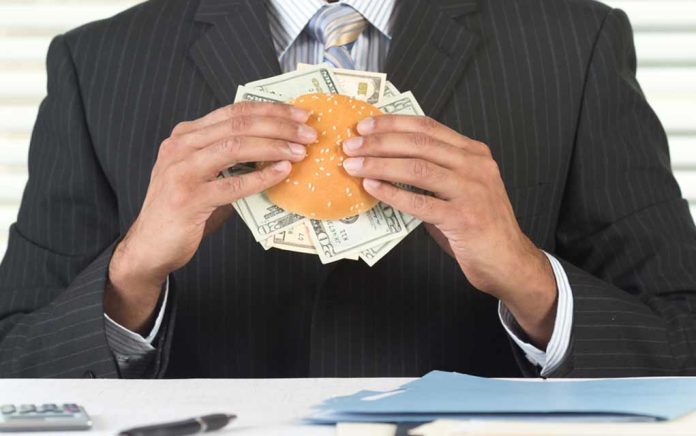
(HealthyResearch.com) – We all have different ideas of what makes food worth buying, but we can probably agree most people expect to get what they pay for. Scammers are everywhere, and the food industry is no exception. Most of us have been scammed at least once by the food industry; many of us likely have been taken by several of their tricks. Here are a handful of common ones most people have fallen for.
1. Fish Fraud
Mislabeled fish has been a problem for a long time, although the types might change here and there. According to Forbes, red snapper, sole, white tuna and “wild-caught” salmon have all been common offenders. One red flag is an expensive fish that has been breaded and deep-fried or slathered in sauce — some means of disguising the impostor.
2. Corn Syrup ‘Honey’
Many of us buy honey as an alternative to cane sugar and high-fructose corn syrup, but some of us might be getting exactly what we’re setting out to avoid. Studies have shown numerous brands have attempted to pass off products containing corn syrup and other sugars in amounts as high as 50%. Researchers continue to work on ways to stay ahead of shady manufacturers looking to make an extra buck on honey consumers, but the problem is ongoing.
3. Fake Grill Marks
Especially if it’s fast food, those lovely grill lines might be a lie. According to the Food Republic, most “grilled” meats are actually pre-cooked using hot air, and the char-lines are branded on. To make them taste like they were cooked over a flame, the patties and chicken breasts get injections or solution treatments with all sorts of natural and artificial flavors. Yum.
4. ‘Diet’ Anything
Life-long skinny people don’t eat “diet” foods. Most of these selections are highly processed and loaded with sugar, so despite being “low fat” or “low calorie,” they’re not likely to help anyone’s waistline. They’re also usually devoid of fiber and most nutrients, making them empty calories… even if they’re only 100 calories per serving. Evidence suggests these types of “foods” (we’re using the term loosely here) only contribute to obesity risks.
5. False Advertising
Some scammers rely on misrepresentation to get people to buy their foods. A great example is “Kobe beef,” which wasn’t even accepted for import to the US until 2012 — and then, only in limited amounts. Forbes reports that most beef sold as Kobe continues to be cheaper imitations.
To a lesser extent, food companies falsely represent their products by filming delicious-looking fakes. Consumer Reports took numerous photos to match foods advertised in pictures and commercials and compared them side by side. Some of the results were downright comical. CR explains that food companies hire “food stylists” to create ideal visions of their products, but rarely do these works of art look like the actual items.
Several players in the food industry have stooped to some unfortunate lows to make money off unsuspecting consumers, but we don’t need to be victims. Read labels, ask questions and be picky. Scammers will always be out there, so it’s up to us to identify the dangers and protect one another from them.
~Here’s to Your Health & Safety!
Copyright 2021, HealthyResearch.com
















